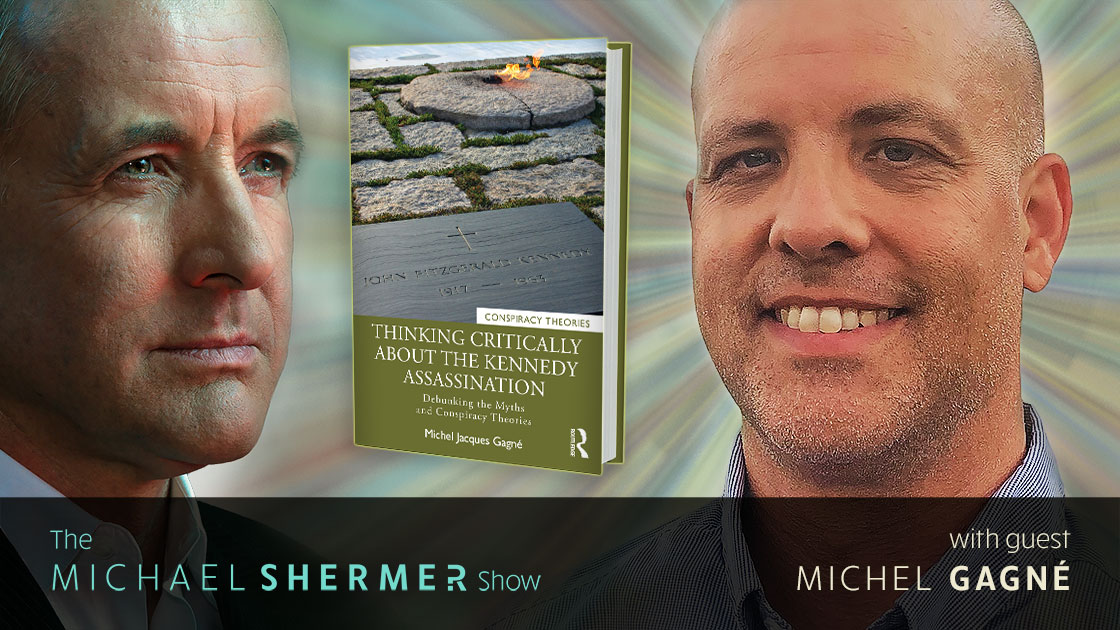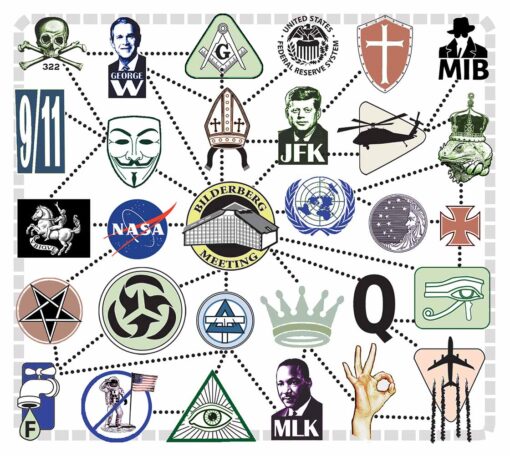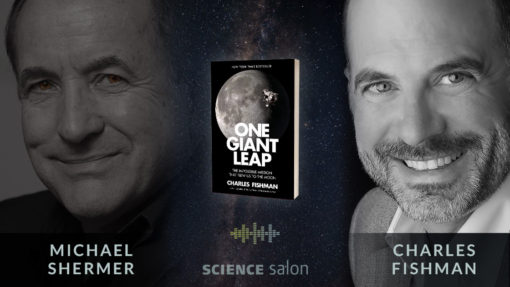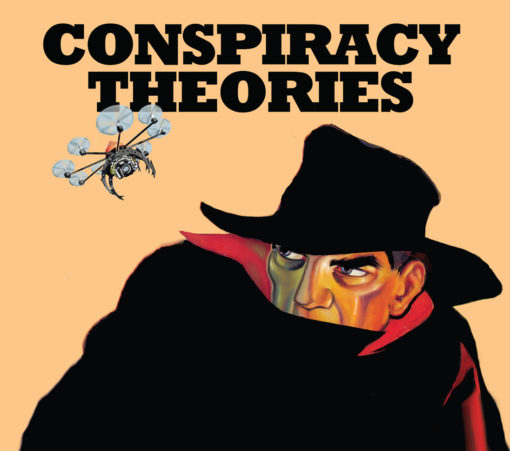JFK

Shermer and Dallek discuss: the origin of the John Birch Society • the “right,” “conservatism,” “liberalism” • “mainstream” vs. “fringe” • Cold War context for the rise of the radical right • the link between the John Birch Society and radical right figures today like Michele Bachmann, Sarah Palin, Marjorie Taylor Greene, Glenn Beck, Alex Jones, Ron Paul, Rand Paul, and Donald Trump • COVID denialism, vaccine disinformation, America First nationalism, school board wars, QAnon plots, allegations of electoral cheating…

As we approach the sixtieth anniversary of the violent public assassination of President John F. Kennedy, over half of all Americans surveyed continue to believe that he was killed by a conspiracy involving multiple assassins. Shermer and Gagné discuss: conspiracies and conspiracy theories; what role conspiracy theories play in society; who believes them and why; why conspiracy theorists rewrite the past; Trump and rigged election; Obama Birtherism; and more…

What is a conspiracy, and how does it differ from a conspiracy theory? Michael Shermer explains who believes conspiracy theories and why they believe them in the following essay, derived from Lecture 1 of his 12-lecture Audible Original course titled “Conspiracies and Conspiracy Theories: What We Should Believe and Why.”
Dr. Anondah Saide and Dr. Kevin McCaffree examine whether political party identification is associated with tolerant attitudes towards individuals with different political views. ALSO, Michael Shermer explains who believes conspiracy theories and why they believe them in an essay derived from a lecture on conspiracies and conspiracy theories.
In Science Salon # 93 Michael Shermer speaks with evolutionary psychology professor Geoffrey Miller about his book: Virtue Signaling: Essays on Darwinian Politics and Free Speech. Plus, Michel Jacques Gagné examines the reasons shocking events like the Kennedy assassination give rise to conspiracy myths.

Why did JFK’s untimely death produce so many clashing interpretations of one of the most meticulously documented periods of history? This article examines the reasons shocking events like the Kennedy assassination give rise to conspiracy myths. Such stories, though based on ostensibly historic events, serve a contemporary agenda, namely by scapegoating a source of existential evil and promoting a paranoid counter-ideology to defeat it. This essay appeared in Skeptic magazine 22.4 (2017) and was presented to the 2017 Concordia-Vanier Liberal…

On this July 16th, the 50th anniversary of Apollo 11, Michael Shermer speaks with veteran space reporter Charles Fishman who has been writing about NASA and the space program for more than 30 years.

No event in the twentieth century did more to popularize conspiracy theories and confuse the general public than the assassination of President Kennedy. By educating people about what actually happened to JFK, and how conspiracy theorists have deliberately lied about it, James K. Lambert hopes that we can also get the general public to better see the lies (aka “fake news”) of today.

No event in the twentieth century did more to popularize conspiracy theories and confuse the general public than the assassination of President Kennedy. By educating people about what actually happened to JFK, and how conspiracy theorists have deliberately lied about it, James K. Lambert hopes that we can also get the general public to better see the lies (aka “fake news”) of today.

In this week’s eSkeptic, Campus Craziness: A New War on Science, in the latest edition of Skeptic magazine (22.4); UFOs, Chemtrails, and Aliens on MonsterTalk; and Dr. Robert Trivers discusses The Evolutionary Genetics of Honor Killings.
On November 22, 1963, President John F. Kennedy was assassinated by lone-gunman Lee Harvey Oswald. Yet, about three-quarters of Americans believe that President Kennedy was the victim of a multi-shooter conspiracy. In this week’s eSkeptic, Michael Shermer discusses several psychological factors at work that allow conspiracy theories to persist.

What is a conspiracy theory, why do people believe in them, and why do they tend to proliferate? Why does belief in one conspiracy correlate to belief in others? What are the triggers of belief, and how does group identity factor into it? How can one tell the difference between a true conspiracy and a false one? … Download the free PDF
In this week’s eSkeptic, we present a letter to the editor of the Los Angeles Times from a reader in response to this op-ed written by Michael Shermer, followed by Shermer’s reply.
In this week’s eSkeptic, David Cowan reviews Logicomix: An Epic Search for Truth, a graphic novel about the life and ideas of philosopher and mathematician Bertrand Russell, written by Apostolos Doxiadis and Christos H. Papadimitriou.

















